EIN SPORTSTÜCK
Directed by: Höhne, Glanz, Kuhlmann, Rieck, Strassenberg, Witt
Sports seem to be everywhere these days. Indeed, not a day goes by without there being some type of media coverage of a sports event, an athlete, a sports official, or a sports federation. Athletes and teams that chase after records and win or lose competitions all add up to an ideology that is linked to the idea and image of an optimized and potent human body. In other words, sports offer the perfect subject for a performance by an inclusive theater like RambaZamba.
Ein Sportstück, a play written by Austrian playwright and Nobel laureate in literature Elfriede Jelinek, tells the story of these human bodies, which in the context of sports always need to get bigger and stronger so that they can be celebrated by the masses. The play, which was first published in 1998, tells the story of the transformation of the human body and of the desires that are projected upon it – as if sports of all things were the vehicle to the attainment of the ideal of the Übermensch, or super-human.
The RambaZamba production puts key events in this history of idolatry at the center of the performance. It starts in antiquity, when the Olympics were first held every four years to honor the gods of ancient Greek mythology. The journey continues with Leni Riefenstahl’s celebration of the heroic (white) body in the film Olympia 1936, in which the victory of the (German) individual is presented as the great success of the entire ecstatic “folkish” nation. We then jump to the 1980s in the third part of the journey – Andi – Ach Andi (Andi – Oh, Andi). This was the era in which the bodybuilder physique, always a bundle of muscles with a good portion of anabolic steroids, made its debut on the world stage. In this part of the performance, an Austrian named Andi, who is a would-be doppelganger of Arnold Schwarzenegger, tries to make himself look like his idol by filling his body with steroids and all other kinds of muscle-building substances. This segment is actually based on a true story – for more than a decade, Andi’s well formed “outer shell,” so to speak, dragged itself to one bodybuilding event after another all over Austria, although he himself began to look more like something out of a horror movie. We then move on to the digital revolution and the age in which it becomes possible to convert arms, legs, muscles, and blood vessels into the language of computer code, thereby allowing the human body to be recreated and resurrected, as it were, in the form of avatars. The old body is dead, long live the virtual body!
Each of the aforementioned episodes is played out against a backdrop in which the sports official is revealed as the true protagonist behind the scenes, whether these be playing fields, stadiums, arenas, locker rooms, etc. In the end, and in the context of the current situation, a strong and disquieting case is made for Jelinek’s theory that there is a real connection between sports and war.
The production is being staged as part of the Special Olympics 2023 in Berlin Cultural Program. The Special Olympics in Berlin will bring together thousands of athletes with intellectual disabilities who will compete in 26 sports disciplines from June 17-25.
For this production of Ein Sportstück, RambaZamba Theater teamed up with students in the theater directing program at the Ernst Busch Academy of Dramatic Arts. This year, the academy launched a project known as Inklusion in der Lehre der Theaterkünste (“Inclusion When Teaching Theater Arts”) that addresses issues that affect theater trainees, professionals, and actors with cognitive disabilities. Director Jacob Höhne and theater directing students Lily Kuhlmann, Josephine Witt, Rosa Rieck, Marten Strassenberg, and Linda Glanz directed the various episodes that make up the joint direction project for Ein Sportstück.
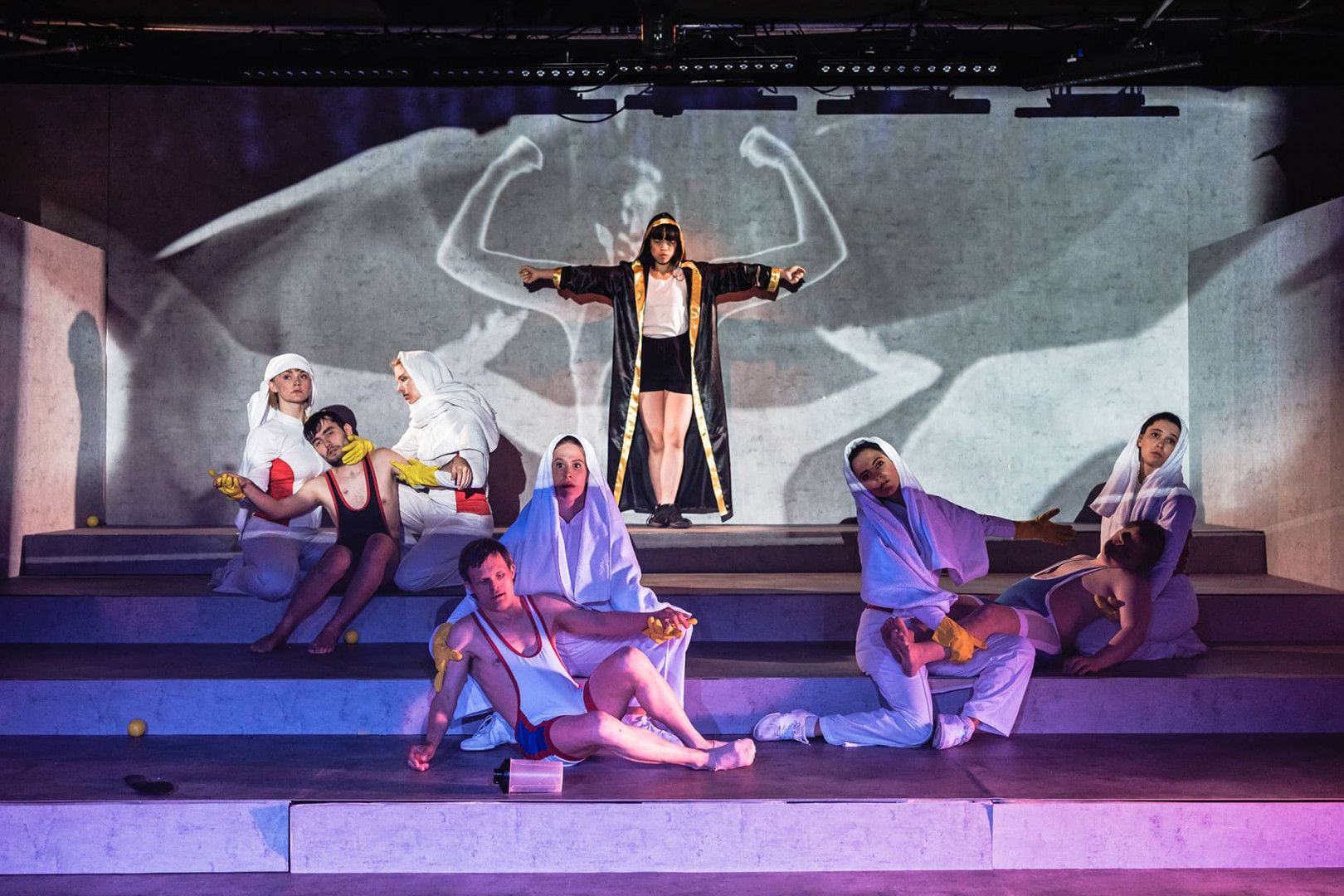
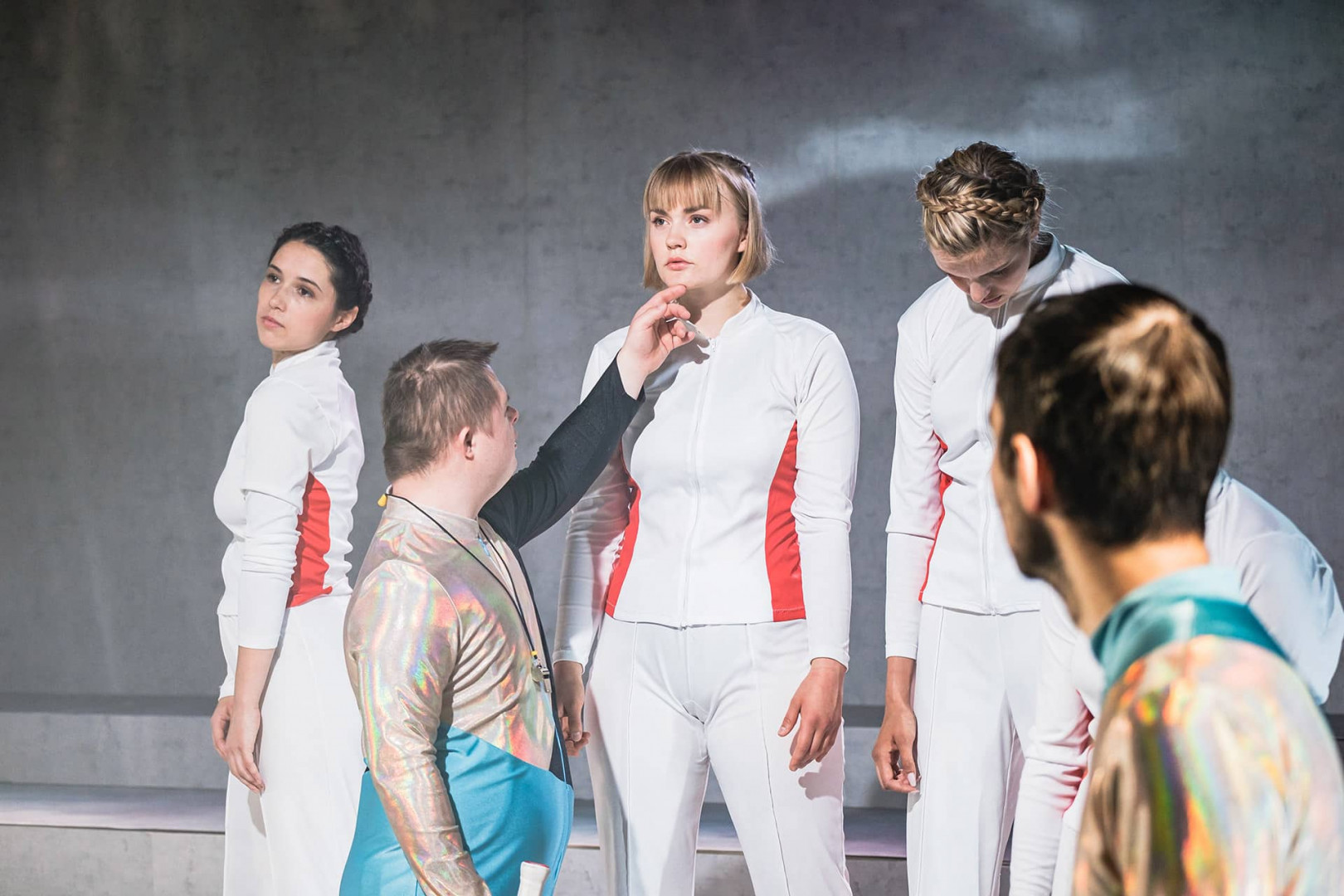
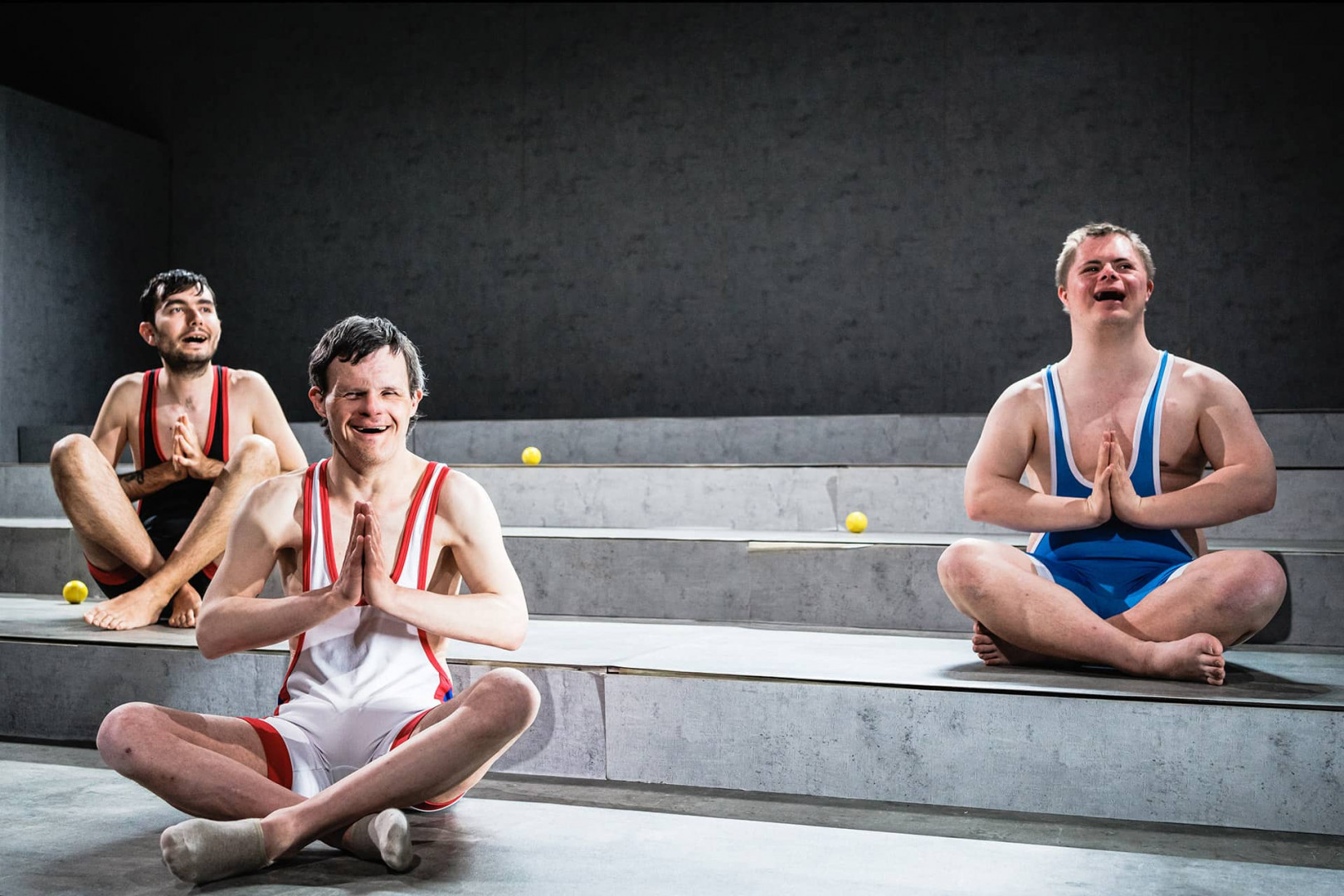
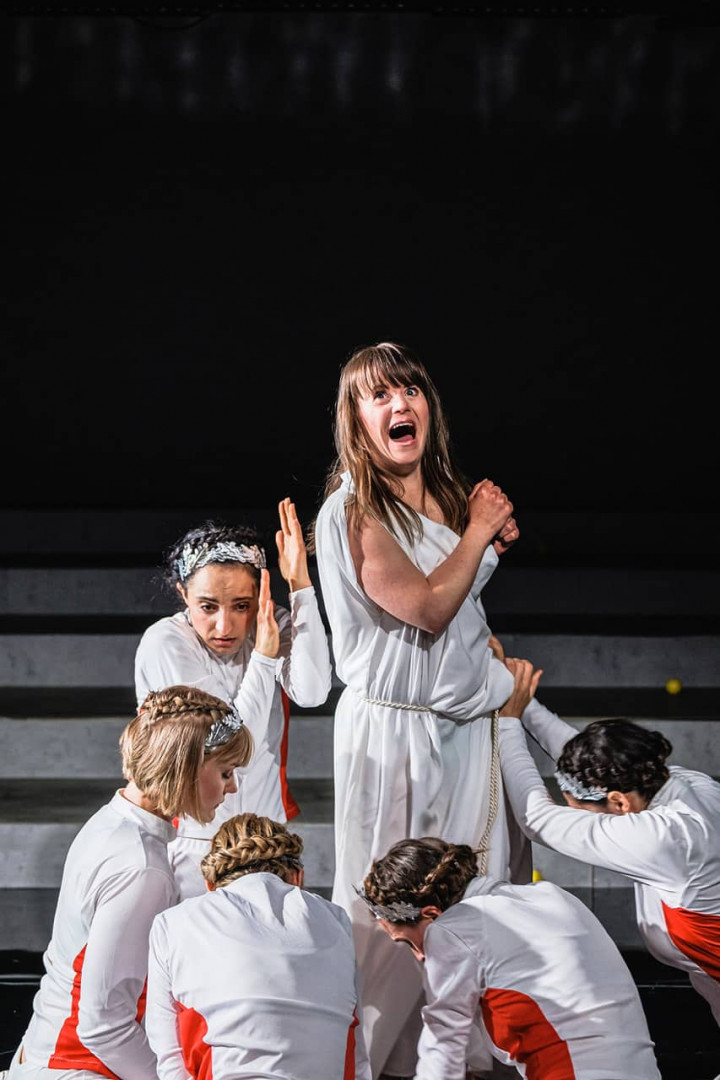
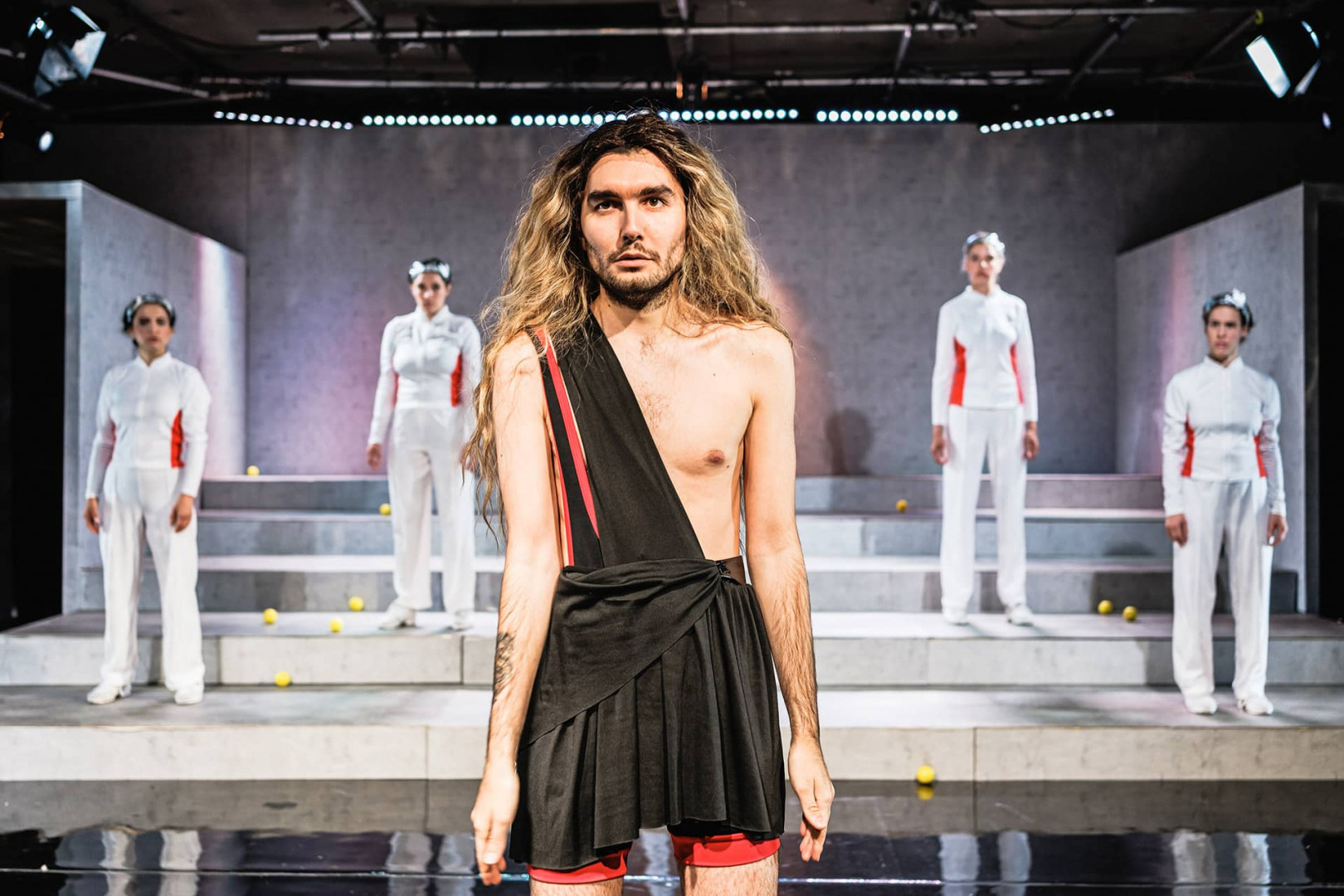
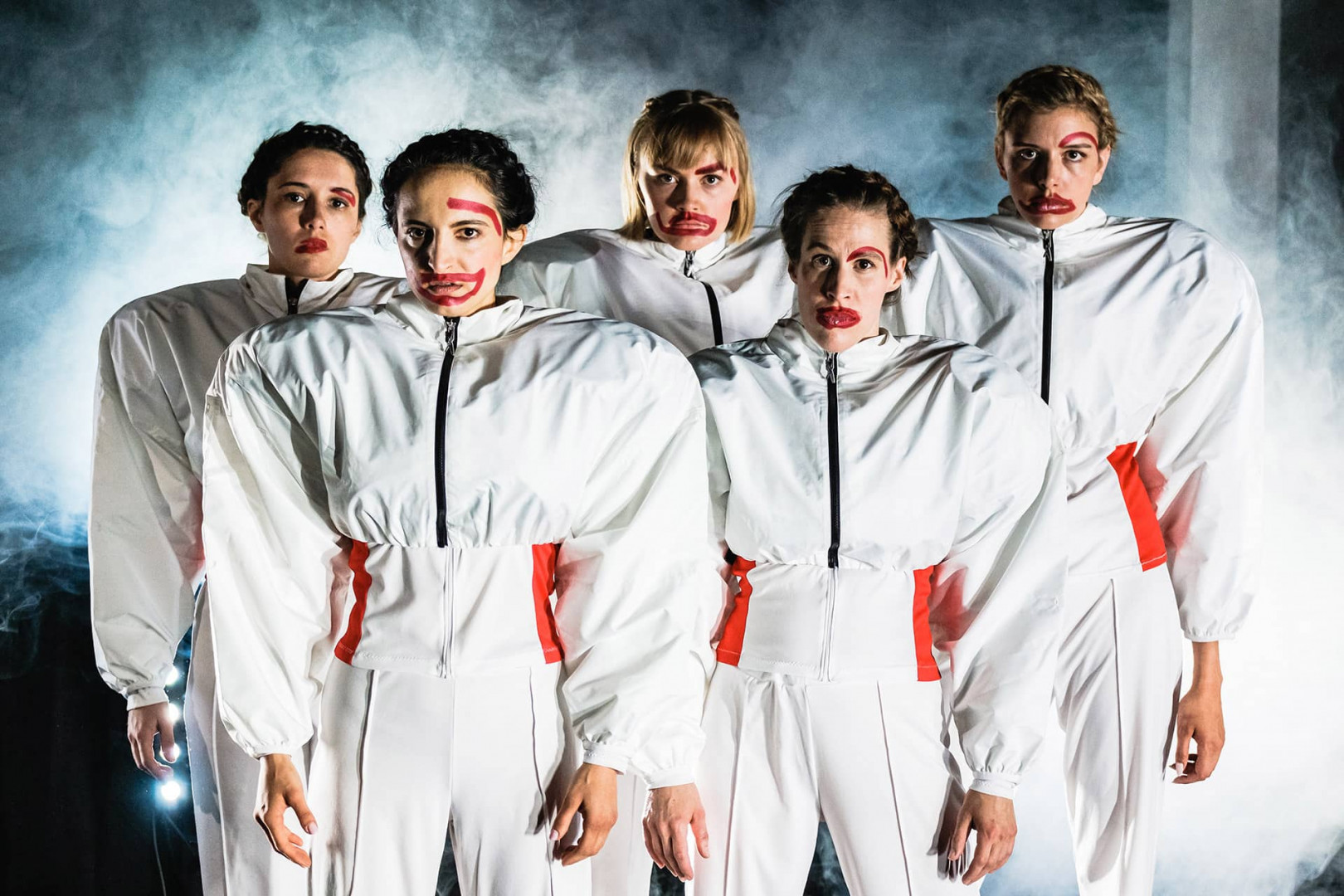
PRESSESTIMMEN
"Unversöhnlich gegenüber stehen sich durchwegs die streng abgezirkelte Wort- und Leibesakrobatik des fünfköpfigen Herrenmenschinnen-Chores und der radikale Individualismus der RambaZamba-Spieler*innen. Das soll natürlich so sein und beschert gleich zu Anfang einen der schönsten Momente, wenn Sebastian Urbanski eine durchaus sehr textnahe Tennis-Ballmaschine aktiviert und Chor und Publikum mit den gelben Geschossen traktiert." Janis El-Bira, nachtkritik.de
"Umso schöner sind die anarchischen Momente des Abends, das schallende Gelächter oder die wie die Partialtriebe in der Psychoanalyse durch den Raum fliegenden Bälle, die Jonas Sippel und Anil Merickan mit sichtlicher Freude Richtung Publikum schmettern. Die entgegengesetzte Pose verkörpert Juliana Götze als neoklassizistische Statue mit Toga und Leni Riefenstahl, deren Filme die Körperbilder des 20. Jahrhunderts als Archetypen zu verewigen suchten. Und Hieu Pham setzt sich zuletzt noch Virtual-Reality-Brille auf, als Wunsch nach dem Verschwinden des Körpers in seiner technischen fortgeschrittensten Form." Jakob Hayner, Welt
"Eins wird im Laufe dieser Inszenierung jedoch klar: Die gedanklichen Bälle, die das Publikum an diesem Abend von den Ensemble-Mitgliedern des RambaZamba Theaters zugespielt bekommt, setzen sich zu einer Geschichte zusammen, die uns alle betrifft. Im hautengen Stretch-Jersey und ausgestattet mit Tennisschlägern stehen Juliana Götze, Anil Merickan, Hieu Pham, Jonas Sippel und Sebastian Urbanski auf den Stufen des Olymps und erzählen uns eine Geschichte des menschlichen Körpers – seiner Idealisierung, seines Verbrauchs und seiner Politisierung." Sophie-Margarete Schuster, Theater der Zeit